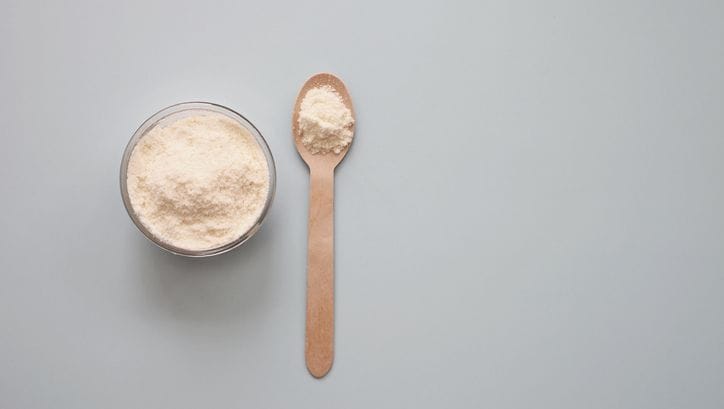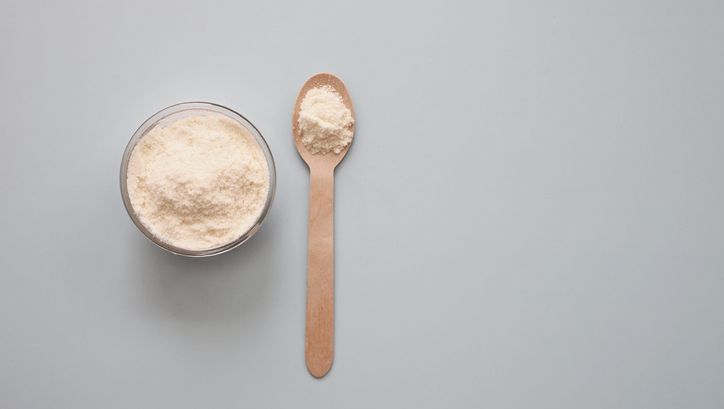IF YOU KNOW anyone who is vitamin B deficient, you may see them taking a vitamin B supplement. They are advertised as a cure for all your vitamin B needs, but do you really need it?
Vitamin B complex is a group of essential micronutrients, consisting of water-soluble B vitamins. [They] they require regular replenishment to maintain overall bodily functions, she says Amy ShapiroMS, RD These micronutrients are essential for maintaining energy levels due to their role in metabolic processes.
Vitamin B complex also plays a pretty important role in brain and nervous system health. It is made up of eight smaller vitamins: thiamin (vitamin B1), riboflavin (vitamin B2), niacin (vitamin B3), pantothenic acid (vitamin B5), pyridoxine (vitamin B6), biotin, folate, and cobalamins (vitamin B12). .
They’re called the B-complex because, although they’re different vitamins, their functions in the body are so similar that they’re lumped into one category, she says Fates moody, RD, a sports performance dietitian. Our metabolism does not function optimally without enough B-complex vitamins.
Ahead, what you should know about these vital nutrients.
What is Vitamin B Complex?
As mentioned earlier, vitamin B complex is a group of B vitamins that help our body function. These vitamins are water-soluble, meaning they dissolve in water and aren’t stored in our bodies, says Shapiro. Intake from our daily diet is necessary to maintain levels of these vitamins and the B vitamins work best together.
What are the benefits of vitamin B complex?
They are responsible for anabolic (building) and catabolic (breaking down) processes in the body, including the release and breakdown of carbohydrates, fats and amino acids. They also carry oxygen and energy-containing nutrients throughout the body.
There’s more: B vitamins act as coenzymes that help speed up these processes, especially those within the brain and nervous system, says Shapiro. They are even associated with improved mental health and cognitive performance.
Separately, each specific vitamin has its own specialized work. For example, Moody’s says vitamin B12, in particular, helps maintain red blood cells and provides part of the coating on our nerves that helps conduct nerve impulses. Most of the other vitamins in the complex act as coenzymes to help the body generate enough energy to fuel everything from getting out of bed to crushing the basketball game. This is why you typically find B vitamins in energy and sports drinks.
Simply put, B vitamins are vital to our health because they act as helpers to all the other hormones and enzymes that control our metabolism and other bodily processes we don’t consciously control, says Moody’s. They are the last background actors of our bodies.
What are the risks of getting too much of the vitamin B complex?
Yes, you need all the B vitamins. And yes, as with most things in life, there can be too much good stuff.
It is possible to get too many B vitamins from supplements. The first thing you’ll notice after taking a very high dose of B vitamins is neon yellow urine, but that’s harmless, says Moody’s. B vitamins are water soluble, so the body usually excretes the excess if you take too much.
However, supplementing with very large doses can overwhelm the kidneys and liver to the point that they can’t eliminate the compounds safely, so take the recommended dose when supplementing anyway. The most serious implications of excessive intake are vomiting, diarrhea and liver damage.
There are just three B vitamins which have maximum limits for daily consumption. The upper limit for folic acid is set due to the fact that increased folic acid intake could mask vitamin B12 deficiency. The upper limit for niacin is attributed because it could potentially cause temporary skin redness for the 100 mg intake, Shapiro says. Finally, excessive vitamin B6 intake could lead to reversible sensory neuropathy, but more research is needed to understand the association.
What foods can you get B vitamins from?
You’re probably getting enough B vitamins from what’s on your plate.
In general, most men get enough B vitamins in their diets, but in some cases, they may be deficient, Moody’s says. Men on restrictive diets may not get enough vitamins, especially if they are vegan. Vitamin B12 is naturally found only in foods of animal origin, but some foods such as cereals, vegetable milks and nutritional yeast are enriched with it. Men who have excessive alcohol consumption, as alcohol depletes the body of B vitamins, may also be deficient.
Moody’s shares that B vitamins can be found naturally in a wide variety of foods, including milk, eggs, seafood, beef, chicken, turkey, fortified cereals and most vegetables.
How much vitamin B complex do you need?
This is a bit of a tricky question, as how much you need depends on each of the eight vitamins individually. There is no need to store the file numbers, but you may want to scan food and/or supplement labels to make sure you’re getting 100 percent of the Daily Value for these vitamins, especially if you’re a vegan or vegetarian. The most common B complex the deficiency is B12which you can find in animal products and fortified breakfast cereals or milk.
How do you know if you are deficient in B-complex vitamins?
Shapiro says deficiency symptoms include fatigue, weakness, and slow reflexes. More specific signs depend on which vitamin B is missing from the diet or not being absorbed. Since you depend on B vitamins to function on a daily basis, you’ll generally know if something is wrong with your absorption.
Because of the B vitamins’ role in generating energy, creating red blood cells, and helping with the transmission of nerve impulses, you’ll see the signs in these bodily systems when you don’t get enough of these vitamins, Moody’s says. You may experience numbness or tingling in your extremities, muscle weakness, anemia, or an irregular heartbeat.
More serious deficiencies have more widespread effects on the body. Some can be permanent depending on how severe the deficiency is and how long you have been deficient. These effects include depression, memory loss, confusion, impaired motor function or paranoia, Moody’s says.
What to know about choosing vitamin B complex supplements:
As always, consult your primary care physician or a registered dietitian to see if a vitamin B supplement may be right for you. A blood test will be able to tell you if you’re getting enough vitamin B12 and other nutrients.
A general guideline to keep in mind when buying any vitamin is to make sure it’s third-party tested, says Shapiro. The FDA doesn’t regulate supplements, and so supplement companies aren’t required to tell you exactly what you’re getting. Examples of these third-party laboratory companies include Consumer Labs, NSF or Informed Choice.
These labs test supplements for purity, safety and potency, and dietitians always recommend consumers look to products that have gone through this process for optimal results, Moody’s says. For B-complex supplements in particular, make sure that all B vitamins are included in the product and control the specific dosage according to your body’s needs.
Beware of supplements with excessive amounts of vitamins, such as a DV of 500% or more. You should also be sure that there is sufficient vitamin B12 above all else. In addition to being one of the most essential B vitamins in the complex, it’s also one of the most common deficient ones, so it has the greatest need for supplementation, he says.
Remember, though unless your doctor has told you to supplement, you probably don’t need to waste your money.
As long as you adhere to a healthy diet with a good balance of lean protein and vegetables, you don’t need to take B-complex supplements, says Moody’s. Like vitamin C, B-complex vitamins are water soluble. As a result, they cannot be archived for later use. The body will use what it needs and the rest is excreted as waste in the urine.

Perri is a writer born and living in New York City; she holds a bachelor’s degree in psychology from Columbia University and is also a graduate of the plant-based Natural Gourmet Institute’s culinary school, which is now the Natural Gourmet Center at the Institute of Culinary Education. Her work has appeared in the New York Post, Men’s Journal, Rolling Stone, Oprah Daily, Insider.com, Architectural Digest, Southern Living and others. She has probably seen the Dave Matthews Band in your town and will never turn down a Bloody Mary. Learn more at VeganWhenSober.com.
#Heres #Bcomplex #vitamins
Image Source : www.menshealth.com

